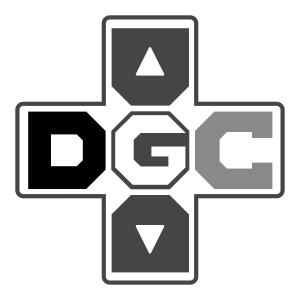
Welcome to Dev Game Club, where we are on to the second of our series on 2005's God of War. We talk about what a fully scripted camera allows you to do, where it breaks down in implementation, as well as touching on the over-the-top nature of the game and its light RPG elements. Dev Game Club looks at classic video games and plays through them over several episodes, providing commentary.
Sections played:
Through the Challenges
Podcast breakdown:
0:43 Segment 1: God of War
51:40 Break
52:20 Segment 2: Feedback
Issues covered: Birthdays, Sierra interview, the academic/theoretic side of making games, the early days, the Yosemite photograph, cameras and third-person action-adventure, level design and the camera, scripting the camera throughout the game, conceptually 2D in some ways, freeing up the right thumb, flicking to roll, managing the space well for the camera in combat, sewer camera problem, "God of War Camera," altitude in combat, telegraphing the camera through player control vs designer control, exploring a space from multiple directions, being clear about what space you're in and whether you've been there before, not knowing where you can go, were levels and camera being designed at the same time?, lack of telegraphing of direction to follow, not having supporting mechanics to know you've missed things, possibility of thinking you have to do something local to solve a puzzle, sense of scale, having to trust the game, using the camera to hide secrets, gigantic sense of scale, capturing sense of scale with a closer third person, over-the-top violence, combining scale and animation and camera cohesively, pairing button mashes to animation speed, herky-jerky and stop-motion animation, sacrificing a soldier, pushing Kratos's inhumanity, toxic masculinity, toxic masculinity/anti-heroes and pop culture, wanting to play as a hero, lack of choice, light RPG elements, stringing combos together, leveling the Artemis sword, balancing weapons with XP, liking to power up the base weapon, just using the cutting laser in Dead Space, the ranged blades of chaos, compelling weapon design due to flexibility, combo-based games, watching skilled players, playing for stream, power escalation and enemy introductions, adding multiple enemies of a newly introduced type, foreshadowing the moment of Kratos's jump, whiskey-fueled voices, looking at your user experience to support tutorialization, taking the easy way out at the end of production, implicit tutorials and learning, real-time and turn-based tutorials, implicit tutorials and iteration, not hand-holding for experienced players, players don't read, also: podcast listeners don't read show notes, prove me wrong, send us an email :)
Games, people, and influences mentioned or discussed: Sierra, King's Quest/Space Quest, Mark Crowe, John Romero, Larry Holland, Julian Gollop, Tim Schafer, Dave Grossman, Soul Reaver, Super Mario 64, Ico, Shadow of the Colossus, Prince of Persia (2008), Devil May Cry, Crystal Dynamics, Tomb Raider (series), Republic Commando, Super Metroid, Ray Harryhausen, Jason and the Argonauts, The 7th Voyage of Sinbad, DOOM, Cory Barlog, The Sopranos, Breaking Bad, Dead Space, Bioshock, Rygar, Bayonetta, Resident Evil, Plasticman, Mr. Fantastic, Ninja Gaiden Black, Boy.Pockets, Tom Waits, Gilmore Girls, Zachary Crownover, Chevy Chase, SpaceChem, FTL, Detention, Red Candle Games, The Last Door, Nintendo, Civilization, Fallout.
Next time:
Finish God of War (2005)!
@brett_douville, @timlongojr, and @devgameclub
DevGameClub@gmail.com
More Episodes
 2024-11-06
2024-11-06
 2024-10-30
2024-10-30
 2024-10-23
2024-10-23
 2024-10-16
2024-10-16
 2024-10-09
2024-10-09
 2024-10-02
2024-10-02
 2024-09-04
2024-09-04
 2024-08-28
2024-08-28
 2024-08-14
2024-08-14
 2024-08-07
2024-08-07
 2024-08-01
2024-08-01
 2024-07-24
2024-07-24
 2024-07-17
2024-07-17
 2024-07-10
2024-07-10
 2024-07-03
2024-07-03
 2024-06-26
2024-06-26
 2024-06-19
2024-06-19
Create your
podcast in
minutes
- Full-featured podcast site
- Unlimited storage and bandwidth
- Comprehensive podcast stats
- Distribute to Apple Podcasts, Spotify, and more
- Make money with your podcast
It is Free
- Privacy Policy
- Cookie Policy
- Terms of Use
- Consent Preferences
- Copyright © 2015-2024 Podbean.com




